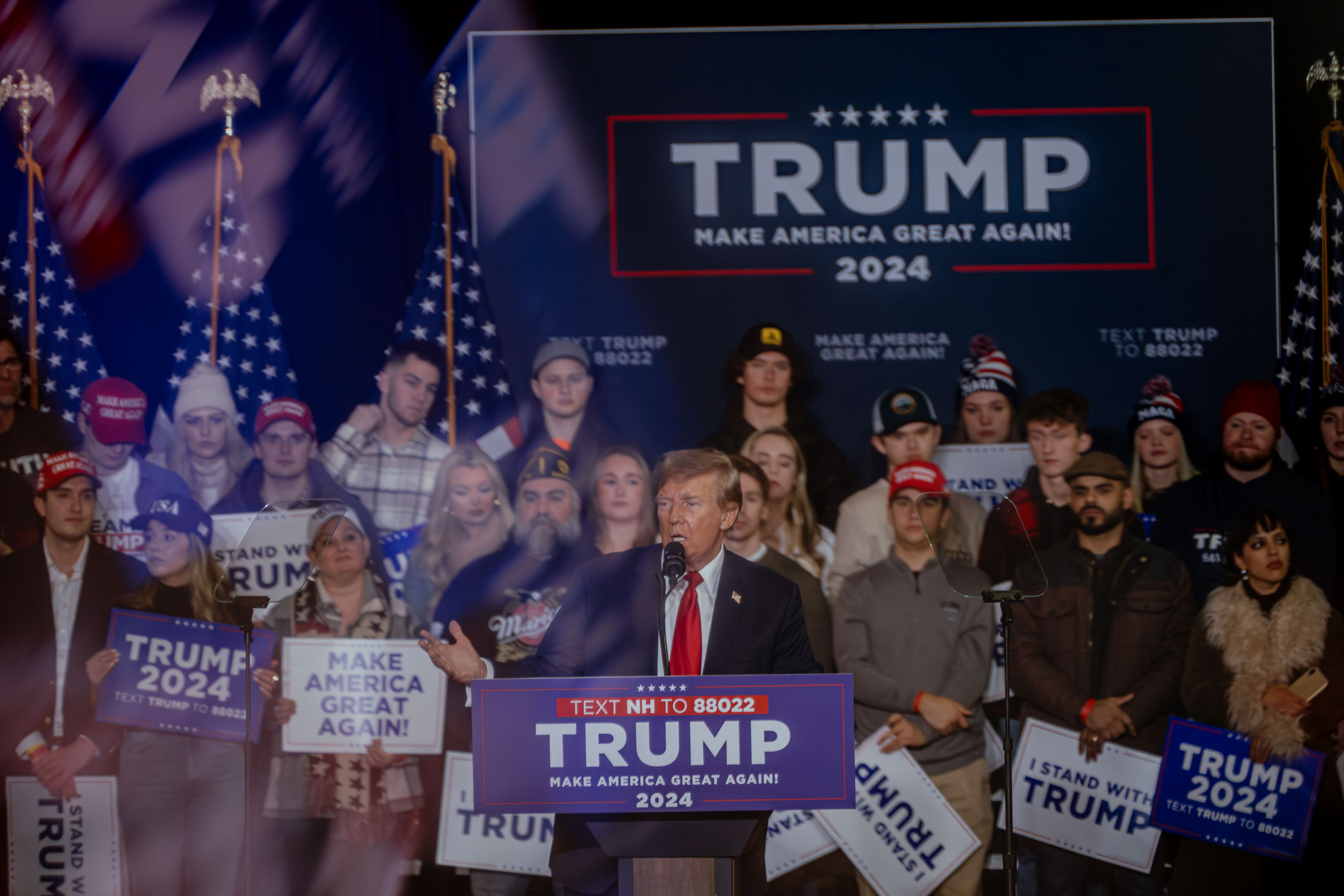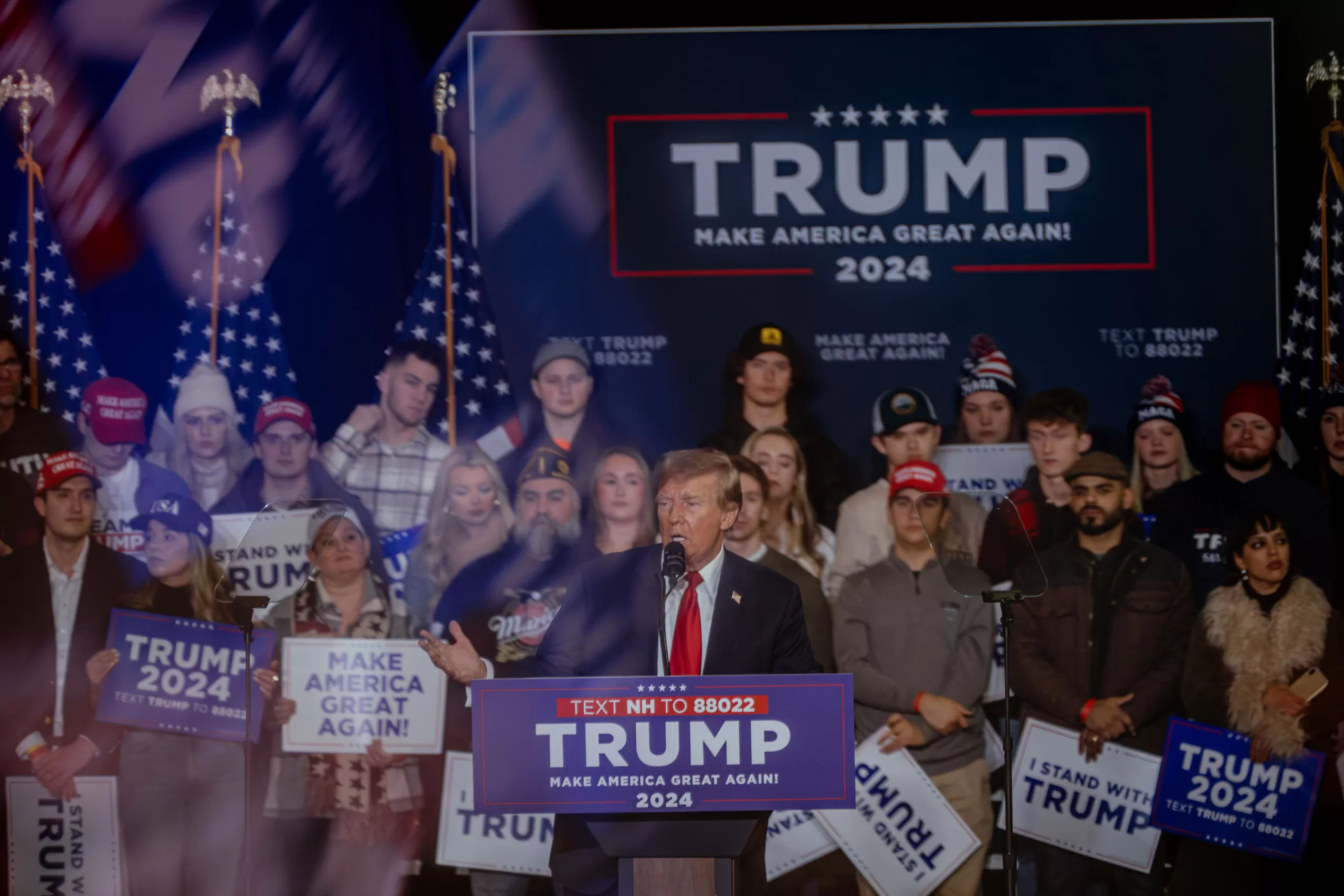
How is it, after all, that some 230,000 votes cast in two vastly different states during a competitive primary all went for the same candidate?
“We’ve nationalized and so tribalized ourselves on social media — and the ability to communicate directly with voters goes around that filter — that Tip O’Neill’s old rules do not apply,” said Mike Madrid, the Republican strategist and co-founder of the anti-Trump Lincoln Project.
What’s left, Madrid said, is a deadening sameness to our politics that transcends not only state but international borders.
“There’s a very good argument that white rural, non-college-educated voters in Pennsylvania have more in common with rural, non-college-educated voters in England that voted for Brexit as opposed to voters in a more diverse urban core — college-educated voters in London and New York,” said Madrid, who is at work on a book about the trend.
Disappearing along with those state-specific contours? Favorite-daughter status for Haley in her native South Carolina, where she was a popular two-term governor — and at the very moment she needs it most. Returning to the state after her defeat in New Hampshire, Haley urged supporters to remember “you have been with me before.” But there’s a reason she is polling 30 percentage points behind Trump in her home state.
The first in the South primary has “been nationalized since last year,” said Republican state Sen. Josh Kimbrell, who backed Ron DeSantis before declaring his support for Trump.
Even if she had the backing of her former political allies, it may not do anything to change the race. DeSantis couldn’t parlay support from Iowa’s popular Republican governor, Kim Reynolds, into a victory in the first caucus state — nor did support from Bob Vander Plaats’ evangelical machine help. The following week, New Hampshire Gov. Chris Sununu campaigned hard for Haley in his state, and that wasn’t enough. In both states, Trump cleared over 50 percent of the vote.
Polls suggest it’s the same story in South Carolina. In this nationalized climate, Kimbrell said, Haley’s time as governor loses any luster.
“I don’t think she has a chance to pull South Carolina,” Kimbrell said. “It’s going to be a yawning victory for the former president.”
In Iowa, DeSantis’ vaunted ground game, marquee endorsements and stubborn commitment to do “Iowa the right way,” as he said, amounted to winning precisely zero counties. Trump won handily, even as his opponents poured tens of millions into the state — more than five times the amount Ted Cruz, Marco Rubio, Trump and John Kasich spent on Super Tuesday combined in 2016.
“It turns out that all the money in the world, 99-county tours and endorsements by the biggest political leader in the state and the biggest evangelical leader in the state was not enough to beat Donald Trump,” said David Kochel, the longtime Iowa Republican strategist. “Cable news and all the progressive and conservative media ecosystems tend to treat this all as a big national storyline. And then people follow it that way.”
They did in New Hampshire, too, even with its vastly different electorate. Mavericks needed not apply.
After all, New Hampshire did not, as Haley suggested, “correct” Iowa’s vote. This, even as Haley and her allies spent millions campaigning in the state.
The old way of campaigning in New Hampshire — campaigns reaching out to potential voters at house parties and hoping they, in turn, tell others — is on life support. Campaigns did far less voter contact this time around: Only
23 percent of probable Republican primary voters interviewed in the closing days of the campaign by a Monmouth University-Washington Post poll said they’d been personally contacted by someone encouraging them to support one of the candidates. That was down sharply from the same poll in February 2016, in which 49 percent of Republican primary voters said they’d been personally contacted.
Absent a friendly door knock from a familiar face, or any face at all, voters have been left with whatever beams into their living rooms or flashes across their devices on any given night: An ad from a super PAC featuring Trump, talking heads chattering about Trump, Trump himself in a courtroom.
Just ask DeSantis. He cited Trump’s indictments as
a regret, saying they “distorted” and “sucked out a lot of oxygen” from the race.
Perhaps no Republican strategist working the 2024 campaign has had a more unique vantage point into this new dynamic than Kory Wood, a consultant from the firm Ascent Strategic. At the same time he was serving as a senior adviser on Vivek Ramaswamy’s American Exceptionalism political action committee, steering the entity through a presidential race, he was also managing a mayoral race in the Indianapolis suburb of Carmel.
Down that mayoral race’s homestretch, the Democratic candidate tried to inject national politics into the race, demanding Wood’s client, a Republican, denounce Moms for Liberty, the culture warrior group. As she weathered attacks, Wood’s candidate kept telling him she just wanted to talk about filling potholes.
He told her that wouldn’t work. In this current environment, “fix the damn roads” — a phrase Michigan Gov. Gretchen Whitmer famously used in her 2018 campaign — was no longer what voters wanted to hear about.
“What’s happening in Washington, D.C.,” Wood said, “is driving the narrative.”
Steven Shepard contributed to this report.
